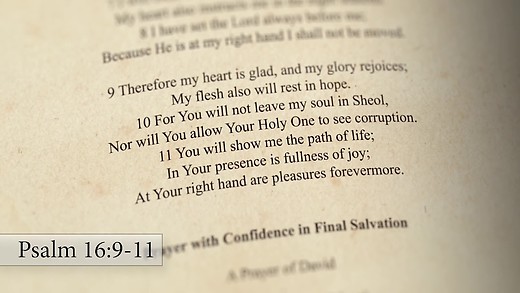

Psalm 2 (part 2): The First Ascension of Christ (Psalm 2:6-7)
Psalm 2:1-3 describes the present spiritual warfare with mankind in confusion and rebellion against the Lord and His Anointed (Christ). The Lord in Heaven laughs them to scorn (v4) and then speaks to them in His wrath (v5), declaring His answer to all their puny efforts to overthrow His authority: “Yet I have set My King (Jesus Christ) on My holy Hill of Zion” (v6). This was fulfilled by the Ascension of Christ to God's right hand (Psalm 110:1). Having completed His perfect life as a man, climaxed in His sacrificial death for us and His resurrection, Jesus ascended into Heaven.
We discuss why Jesus had to initially ascend to Heaven on the morning of His resurrection (John 20:16-17), to (1) fulfil the feast of First Fruits (Leviticus 23:10-11, 1Corinthians 15:20,23, Matthew 27:52-53), which is why Mary was not allowed to cling to Him (John 20:17), unlike in Matthew 28:9, Luke 24:39, John 20:27, (2) to present His Blood in the heavenly Holy of Holies (the throne room), to establish the New Covenant (Hebrews 9:12), (3) to receive all authority in Heaven and earth (Daniel 7:13-14, Matthew 28:18, Ephesians 1:19-22, Psalm 110:1, Philippians 2:8-10, Revelation 12:5), and (4) to receive the Holy Spirit on our behalf (Acts 2:32-33), enabling Him to impart the indwelling Holy Spirit to the disciples that same evening, causing them to be born again (John 20:22, Genesis 2:7).
The Ascension of Christ, represents the completion of God's decisive move in the spiritual warfare. It means that God's Anointed One has been sent into the earth as a perfect Man and has accomplished His mission of purchasing our salvation and defeating all his enemies, and is now established in the highest place as Lord over all. By His completed work, He has already won the victory, and He did it for us. When we were put into Christ, we were raised with Him and made to sit with Him at God's right hand in the heavenly places, far above all principality and power (Ephesians 2:4-6, 1:20-21).
We discuss why Jesus had to initially ascend to Heaven on the morning of His resurrection (John 20:16-17), to (1) fulfil the feast of First Fruits (Leviticus 23:10-11, 1Corinthians 15:20,23, Matthew 27:52-53), which is why Mary was not allowed to cling to Him (John 20:17), unlike in Matthew 28:9, Luke 24:39, John 20:27, (2) to present His Blood in the heavenly Holy of Holies (the throne room), to establish the New Covenant (Hebrews 9:12), (3) to receive all authority in Heaven and earth (Daniel 7:13-14, Matthew 28:18, Ephesians 1:19-22, Psalm 110:1, Philippians 2:8-10, Revelation 12:5), and (4) to receive the Holy Spirit on our behalf (Acts 2:32-33), enabling Him to impart the indwelling Holy Spirit to the disciples that same evening, causing them to be born again (John 20:22, Genesis 2:7).
The Ascension of Christ, represents the completion of God's decisive move in the spiritual warfare. It means that God's Anointed One has been sent into the earth as a perfect Man and has accomplished His mission of purchasing our salvation and defeating all his enemies, and is now established in the highest place as Lord over all. By His completed work, He has already won the victory, and He did it for us. When we were put into Christ, we were raised with Him and made to sit with Him at God's right hand in the heavenly places, far above all principality and power (Ephesians 2:4-6, 1:20-21).
Activity